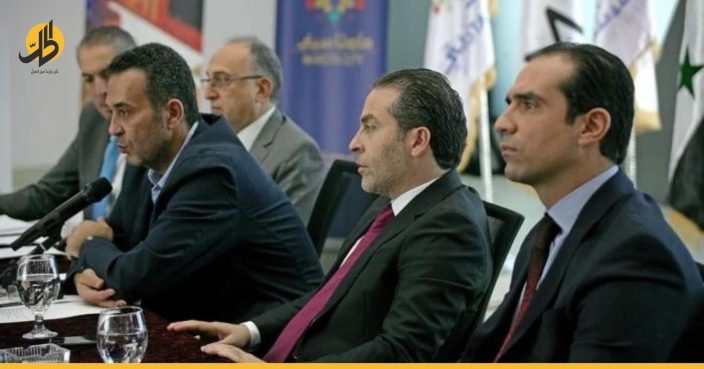Apparently, the impact of the U.S. decision to lift sanctions on northern Syria began to circulate within the corridors of Syrian financial circles inside the country. The development came to these actors like a thunderbolt, especially since they relied on reaping the fruits of their allegiance with the Damascus government in previous years. This approach has followed steps of normalization with Arab countries — despite Damascus’s rejection of the path of a political solution.
Damascus captains of industry hold secret meeting
Washington’s decision to lift sanctions on northern Syria — which has tightened the noose on the Syrian government’s spheres of influence — was described as causing great confusion by Syrian businessman Munir al-Zoubi. The confusion applies to the accounts of several businessmen who lined up alongside the Damascus government, especially since most of them began withdrawing their funds abroad and repatriating that money to Syria.
Zoubi revealed that a meeting took place on Sunday at the request of Hazem Qarfoul, former governor of the Central Bank of Syria. Others calling for the meeting included Ghassan al-Qalaa, Samer al-Debs, Hassan Azkoul, Ammar al-Bardan, and Irfan Darkal.
Zoubi told Al-Hal Net that the businessmen who remained in Damascus fell into two categories. The first category had decided to stay in Syria in order to reap the benefits of the post-war reconstruction, which usually generates very high profits. At the same time, these actors gained the confidence of Syrian authorities ahead of the next stage. These businesspeople are often greatly affected.
The second category covers captains of industry who appeared during the war. These figures replaced the group that controlled the country’s economy before the crisis, such as Rami Makhlouf, who quickly gained wealth through violations. These offences included confiscation of property belonging to Syrians, smuggling, and creating fictitious companies. These actors accumulated power from decision-makers in Damascus.
According to Zoubi, the meeting’s agenda included two main points — first, to attract the attention of traders in northern Syria. These traders may be operating in areas under Turkish influence, or to the east in Autonomous Administration areas. The plan is to establish a secret partnership with these traders in order to expand their business and benefit from the decision to lift sanctions.
The other agenda item covered creating fictitious companies, which would allow them to transfer their money from compromised banks to sanctions-free areas. This would start a new phase of business and trade, while also noting that a dilemma — the presence of Tahrir al-Sham (HTS) (formerly Jabhat al-Nusra) — remains in the middle.
In order to break the deadlock, Debs proposed opening relations with traders in Idleb city to pressure HTS to open crossings with the Damascus government, especially since the region has not been spared U.S. sanctions.
This article was translated and edited by The Syrian Observer. The Syrian Observer has not verified the content of this story. Responsibility for the information and views set out in this article lies entirely with the author.


